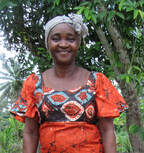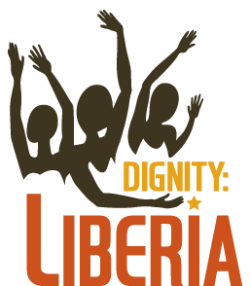
In April 2023, Sao was kind enough to give Dignity:Liberia an interview. She was born in Komah, where she began her schooling, and also lived in Tubmanburg before moving to Monrovia where she graduated from United Pentecostal Mission School.
She has been working with fistula patients and survivors since September 2009. Prior to working at the Phebe Rehab Center, Sao worked in Guinea at a refugee camp. It was there that she learned the art of tie-dye and was trained in soap-making. In addition to teaching these skills to the fistula survivors, she teaches them how to crochet and embroider as well as how to bake pastries.
Learning how to make soap is vital to the survivors, because until their fistulas have been repaired, they are incontinent. Their incontinence necessitates the need to bathe and change their clothes several times a day.
The skills taught to the survivors enable them to earn a living. Many have been abandoned by their spouses and have no money. By learning how to make bread, for example, they can earn money to buy the things they need. Sao tells them that their training will allow them to rely on themselves rather than having to depend on men to do things for them. They can be independent.
In addition to training the fistula survivors, she counsels them. A supporting environment is important to the survivors’ mental health. Sao spoke of the time that one of the fistula patients tried to commit suicide by drinking caustic [used for soap-making]. Thankfully, another survivor’s intervention saved the young lady’s life. Sao now keeps caustic under lock and key because many fistula patients contemplate killing themselves.
She said the message that home deliveries frequently lead to fistula is not reaching people. She urges the Liberian government to continue encouraging traditional midwives to stop home deliveries.
Sao has asked herself how she would want to be treated if she had an obstetric fistula. She would want to be treated with love. She loves the survivors “because they are just like I am.” She treats them as if they were her sisters. “I put myself in their shoes.”


 RSS Feed
RSS Feed